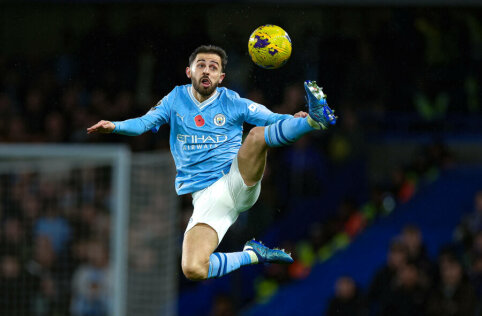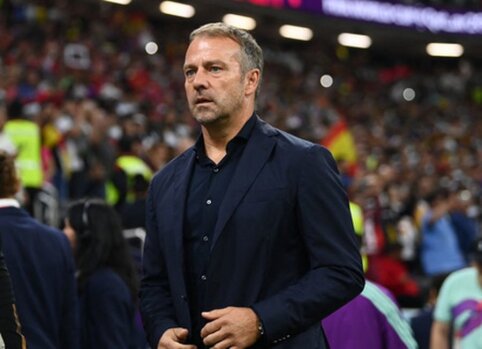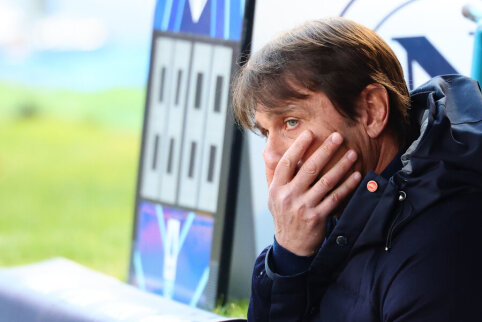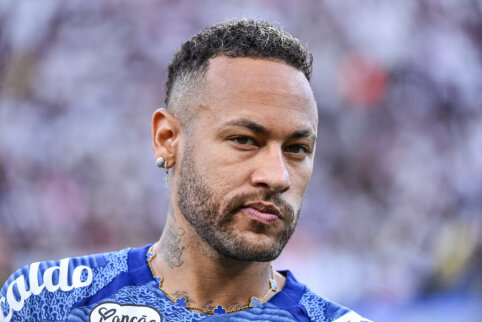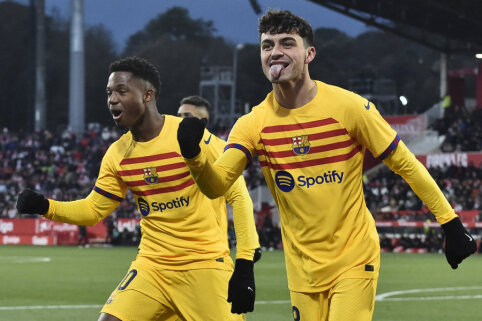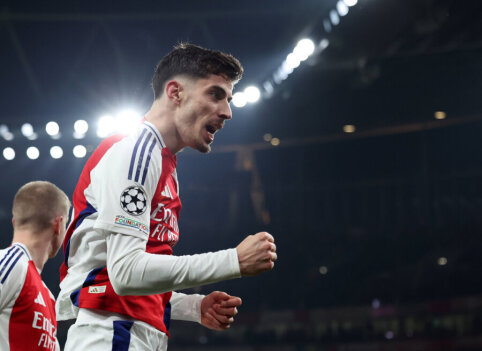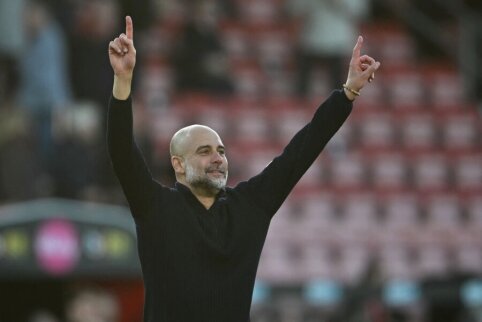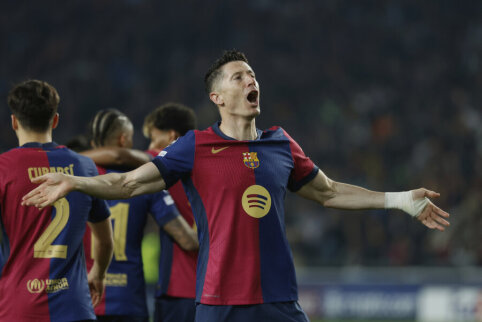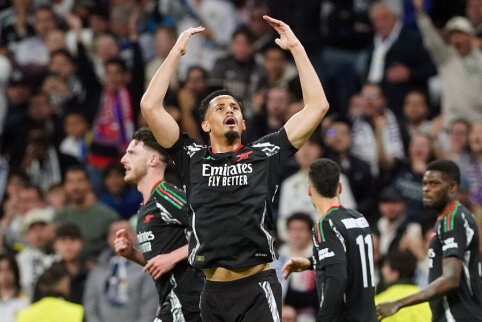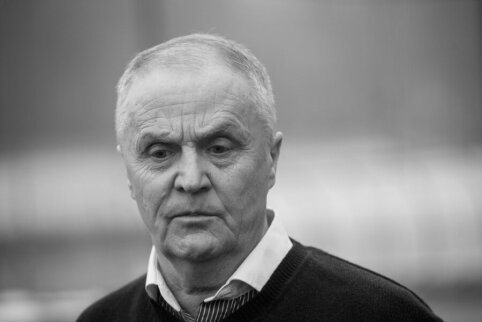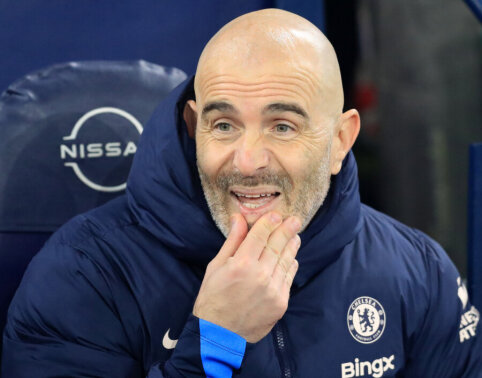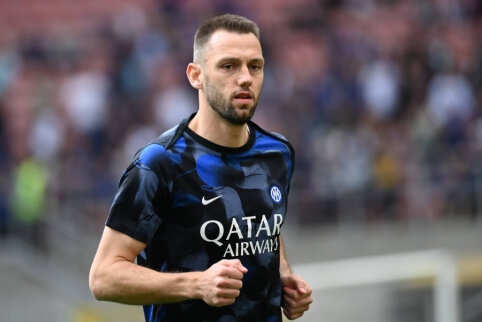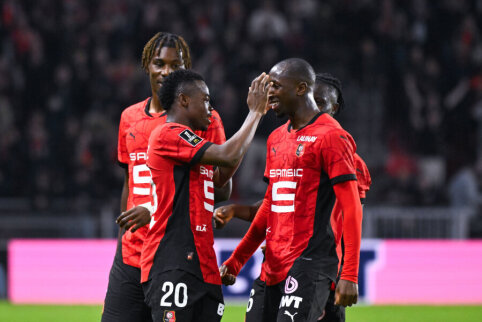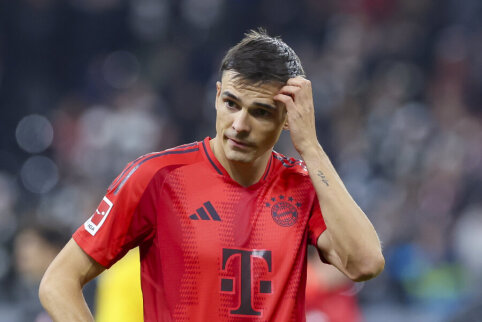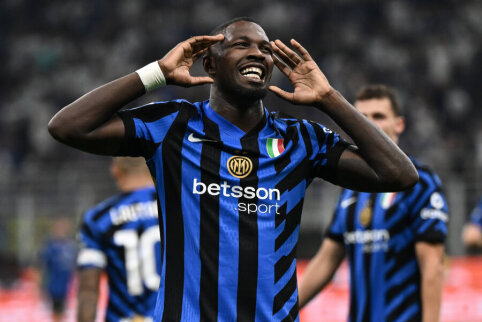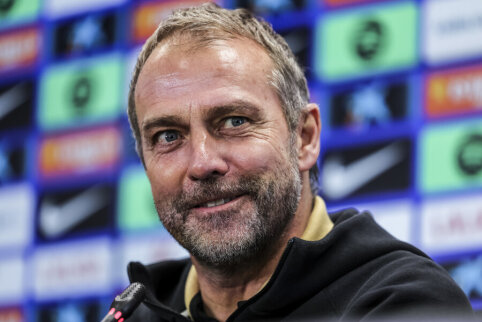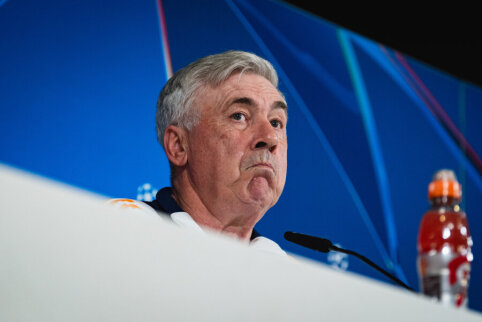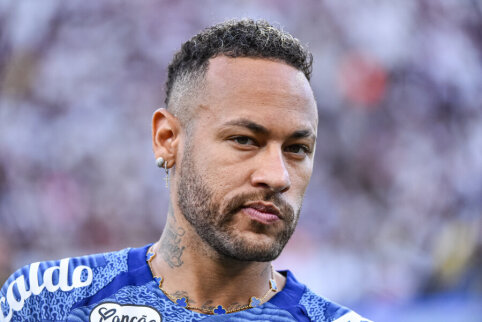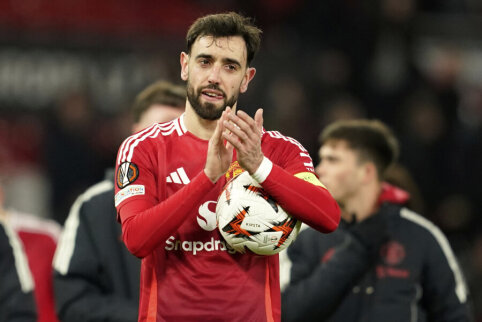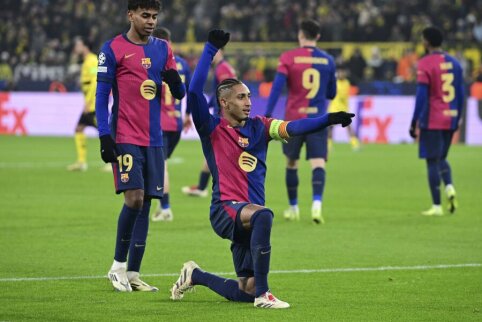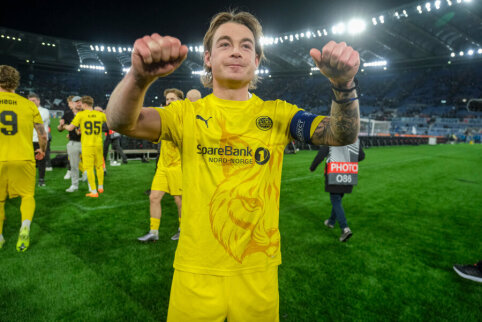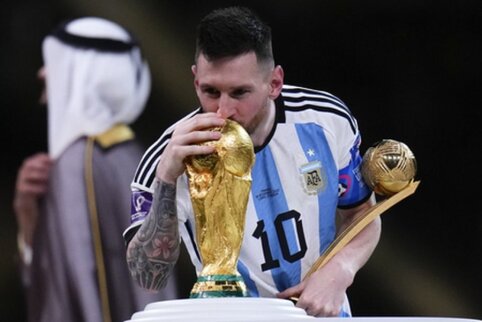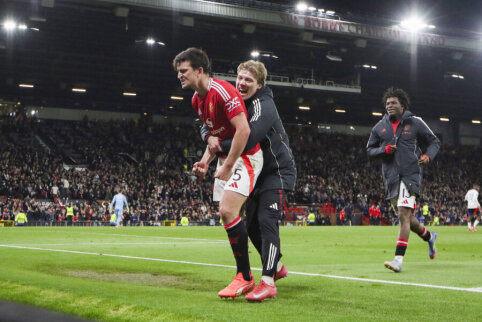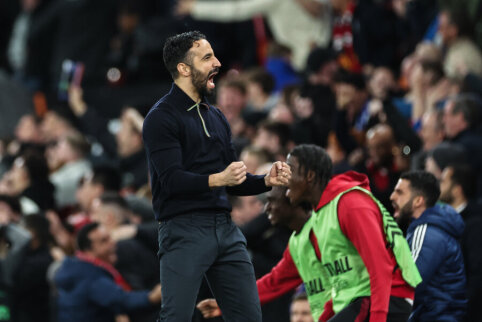 © EuroFootball.com
© EuroFootball.com
Differently from Greece itself, counting not only one millennium of the highest cultural heritage, Greek football has failed to achieve serious victories in its 78-year history.
Usually, in Europe, second-tier national teams (to which Greece can confidently be assigned) perform well, steadily reaching the final stages of continental and World Cup competitions. Moreover, lacking a developed club football system (compared to Italy, England, or Spain), they do not have enough competition for a place in the national team. As a rule, achieving high results in these tournaments is an insurmountable task for them.
That's why Greeks strangely do not give in to this logic. At the club level, things are developing more or less successfully for them. Second-tier Greek clubs, such as "PAOK," usually perform well in various European cups, and giants - and - consistently participate in the Champions League matches, where they can give a hard time to the top five countries' clubs.
Knowing this recent fact, it is even more surprising that Greeks have nothing much to boast about at the national team level. To this day, they have only managed to break into the final stage of the European Championship once. In the 1980s, Greeks appeared in Italy and failed to advance past the group stage.
It can't be said that they looked hopeless back then. The first match was played against the Netherlands. Just like the Czechs in the previous European Championship, they fought evenly with the "oranje." The only factor that determined the Dutch team's superiority at the Napoli stadium was an 11-meter penalty, which the referee from the GDR awarded to the Greek goal in the second half.
In the second match, the Greeks already played at the Rome's "Stadio Olimpico," and there the Czechoslovakian team's advantage was more convincing. Although Anastopoulos managed to equalize the score after Panenka's goal, the effective attacks of Vižek and Nechoda brought success to the Czechoslovaks.
After losing two matches, the Greeks could no longer make any changes to the third game. But in Turin, at the "Stadio Comunale," the match against Germans did not change anything. Maybe that's why Greeks managed to keep a draw with VFR, but it should be noted that the Germans (the future tournament champions) never liked giving up points without a fight.
At the only World Cup in 1994, the Greeks did not fare any better. There they also could not overcome the group stage barrier. Moreover, after losing to Argentina, Romania, and Nigeria with a combined score of 0:10, they became the worst team of the tournament.
In summary, two random participations in international tournaments, which, of course, did not end impressively in any way. Therefore, the qualification for the final of the European Championship tournament this year - is an undisputed success of the Greek national team. It was relatively easy for the Greeks to earn tickets to Portugal: a convincing performance in the qualifying matches allowed the team to avoid playoffs.
The Greeks took the first place in the sixth qualification tournament group. They won six out of eight matches and suffered two losses. Spain's second place in this group became a sensation, and the Greek national team became a discovery of the qualifying tournament.
Who could have expected such an outcome in October 2002, after two lost matches? Yes, it must be said that they did not succeed at the start of the qualifying cycle - the Greeks lost their first two matches - first an unsuccessful match at home with the Spaniards with a score of 0:2, followed by a loss in Ukraine with the same score. But then the Greeks seemed to break through, and they won all the remaining matches.
Among them was one of the most impressive Greek football victories in Zaragoza against Spain - 1:0. That day, Greek goalkeeper Antonios Nikopolidis played one of the best games of his career. Greece managed to withstand the pressure of the Spaniards and avenged them for the home loss in September 2002.
In general, in key matches, Nikopolidis, who is one of the most experienced players in the team, has saved the team many times. His experience gained from playing for "Panathinaikos" in the Champions League has greatly helped him. He was the only player to play in all qualifying matches.
The victory against the Spaniards became just one of the links in the victorious series against Northern Ireland, Armenia, and Ukraine, which allowed Greece to advance to the Euro-2004 final.
The main architect of these victories - German specialist Otto Rehhagel. After the Greeks failed to qualify for the World Cup in Korea and Japan, they called Rehhagel to the post of head coach. This is his first job abroad. In Germany, he can rightfully be considered one of the most successful football specialists.
Leading Bremen, he twice won the Bundesliga, later repeating this achievement with Kaiserslautern, leading this club from the second division to the first. Under Rehhagel's leadership, the teams he coached celebrated victory in the country's cup three times: twice with Werder Bremen and once with Fortuna Düsseldorf. In Europe, Rehhagel cannot be described as the last man - he has a UEFA Cup, won with Eintracht Frankfurt, as well as the UEFA Cup Winners' Cup - also with Werder.
Rehhagel has not worked with national teams until Greece, and he needed some time to adapt. The nightmarish 5:1 loss to the Finns was somewhat compensated by a draw with England 2:2. The Greeks felt their game in June 2003, taking revenge on Spaniards and Ukrainians. After the victory against Northern Ireland, the road to Portugal was open, and Rehhagel strengthened his reputation as a top-class coach.
Before the European Championship, the Greeks had several friendly matches. The last defeat the national team experienced was back in 2002, now unbeaten in 13 games in a row. Bulgarians were looking to spoil this statistic in friendly matches but were defeated 2-0. Despite a negative result in the last friendly, things seem to be in order in the Greek camp. They are using modern tactical schemes and extracting results from them. It remains to extend their unbeaten streak in Portugal, and success at Euro-2004 is guaranteed to them.
Star
The Greek national team has always, is, and will have two basic clubs: Athens' "Panathinaikos" and Piraeus' "Olympiacos." However, relying solely on Greek club players, the national team could not go far, and in crucial moments, always relied on experienced foreign legionnaires.
Today, footballers playing abroad play a key role in the Greek national team. Special places in the team are occupied by players like from , who played a lion's share of his career at , , who, although a substitute, has a solid position at , , who became this year's German champion with "Werder," Zisis Vryzas, is rising from the lower divisions along with , from .
Like in any "second-tier" national team, the main burden in Greece falls on the midfield. Safe defensive midfielders are especially valued here. Greeks have two such players: from and , playing for in England. In this pairing, the advantage lies with the latter, as Karagounis is becoming the key player at Milan, while Giannakopoulos has held a firm position at Bolton since the beginning.
And it's not for nothing. This experienced footballer was the main player at an Ethnicos club in the second Greek division already in the 1992/93 season. During the following three seasons, he played for Paniliakos, then moved to Olympiacos and immediately won the Greek champion's title. From 1997 to 2001, Giannakopoulos played in no fewer than 23 matches, scoring at least three goals in each and consistently becoming the champion.
Already in 2001, he was ready for a trip abroad, but the 2001/02 season turned out to be very unsuccessful for the defender. Due to an injury, he missed the majority of the matches and, although he scored 11 goals in nine matches, his moral state was not the best. A year later, he ranked second among the top scorers in the Greek championship and was named the Greek Player of the Year. In July 2003, Giannakopoulos moved to Bolton as a free agent. He signed a three-year contract.
The Bolton club immediately announced that they had been observing this player's career for a long time and believed that there are not many defenders like him in the world. His main advantage is his instinctive ability to choose the moment when his strike on goal will be the most uncomfortable for the goalkeeper. In addition, he has excellent dribbling skills and knows how to outsmart one or two opponents when needed. Although many criticize him for playing too selfishly, Giannakopoulos always chooses the right moment to shoot on goal.
It was this quality that made Giannakopoulos one of the highlights of the qualifying cycle, scoring a winning goal against Spain. Receivng a pass in an open area near the penalty area, he "handled" the ball with two touches and struck it into the far corner of Iker Casillas' goal.
It is probably symbolic that the leader of the Greek national team scored their most important goal in the entire qualifying cycle against Spain.
Weak link
It seemed that the Greek national team should not have any problems. All the difficulties and weaknesses usually befall those teams that have long victorious histories, traditions. But the Greeks are a nation with a not very rich history of final tournaments' achievements, so there are not high hopes for anything in this championship. Therefore, they practically should not be very disappointed with the results.
The question arises: what result of the Greek national team will be considered unsuccessful?
In a group where, apart from the Greeks, there are the hosts of the European Championship Portugal and almost hosts Spain, plus the Russian national team, which is also difficult to call a "gift," where should Greece finish in order for their performance at home to be considered not bad? If the Greeks end up in the final fourth place, will that be considered a catastrophe?
It is difficult to expect something serious without experience. The Greeks have participated only in two major tournaments to date and have managed to win only one draw in all their matches, successfully losing all remaining five matches. Moreover, none of the current Greek national team footballers have even minimal experience that the participants of those two tournaments gained.
Of course, it was possible to take risks and invite Nikos Machlas to the national team, as a person who at least had some connection to the debut in the World Cup finals. But Machlas is no longer the same, and many of the current national team attackers are better than him. The fact that Machlas, who was once the top scorer of the Dutch championship while playing for Vitesse before representing and did not arouse any interest in Greece except for the modest "Iraklis," speaks volumes.
Therefore, playing in the European Championship without players who have participated in at least one international tournament is a dubious idea with fairly bleak prospects. Even the Turkish national team - the best example of a debutant - had participated in three major tournaments before winning the third place in the 2002 World Cup.
When the Greeks went to the USA in 1994, a similar period had passed as from their last participation in a major tournament (1980, Italy), and everyone remembers how it all ended. Already in the second minute of the first game against the Argentineans, Gabriel Batistuta scored the first goal, to which he added another in each half, and Diego Maradona scored a goal in his fourth World Cup. The second Greek match against the Bulgarians began with a quick goal. Already in the 5th minute of the match, Christo Stoichkov converted a penalty into the Greek goal. He repeated the same action in the 55th minute, and Jordan Lechkov and Daniel Borimirov finished the rout. Therefore, the Greeks' last tournament match, lost by a score of 0:2, did not change anything. The Nigerians George Finidi and Daniel Amokachi each scored a goal against a team that tested all three of its goalkeepers during the tournament.
Of course, the group, with Nigeria, becoming a discovery of the tournament, semifinalists Bulgaria and Argentina, could rightly be called very challenging. But most likely, this is what awaits the Greeks this time, coupled with their little and not very successful experience of such matches, fans can rightly expect the worst.
Hope
Sports Greece, with its not very football-rich history, can hardly claim the title of one of the favorites of the European Championship. The only time the Greeks went to the continent's finals, they failed to achieve anything good. A similar situation also arose ten years ago in the USA. However, this time the Greeks have one more factor than the previous two. Whether you believe it or not, Greece is experiencing a sports boom. At the end of this country will host the Olympic Games - a factor that is difficult to underestimate. As you know, football is part of the Summer Olympics program, Greece won the right to play in their second European Championship tournament. In the context of these events, more fans' movement will be very beneficial to Greeks, as well as the development of various other football infrastructures.
The Greeks are taking advantage of their chance. Throughout the country, there are universal construction and rapid modernization of sports facilities. Just the opening of new facilities amounted to about 50.
This has a certain impact on the national team as well. With three months remaining until the start of the tournament in Portugal, the Greeks presented their new logo and acquired new sponsors.
Greece's Football Federation (GFF) intends to strengthen the business - one of the main factors of World Sports No. 1. Judging by the Napoleonic plans of the federation, it will touch not only club football but also the national team. First, the GFF will strive to improve Greece's football image and adapt it to modern market realities.
Simply put, Greek football is becoming more modern. After changing the logo, the national team immediately signed contracts with six very serious sponsors, who decided not to miss the opportunity to collaborate with the national team. At the moment, the contracts are signed until 2006, and then everything related to the game, results, and all the rest that determines the public image of the national team must be in order. The goal of these innovations is to make the national team more open and accessible to fans.
Thanks to these latest contracts, for the first time in its history, the GFF has reached a new level of financial independence. With UEFA and FIFA examples in mind, Greeks are developing their football organizations. Until now, they have lagged behind in the financial sector compared to the rest of Europe. The first steps in sports marketing were taken by Greek football just two years ago.
Of course, in such a short period, it was difficult for Greeks to achieve anything serious. But now their financial base is growing. By 2003, only 27% of the GFF budget consisted of state contributions; everything else was sponsor money and income.
Undoubtedly, this will be a significant factor that will help the Greek national team to perform well at the European Championships in Portugal. Larger investments are expected. This factor should also affect the players' psychology. More sponsors - larger budget. A larger budget - bigger bonuses. Bigger bonuses - more motivation. And with higher motivation, the result may come.
